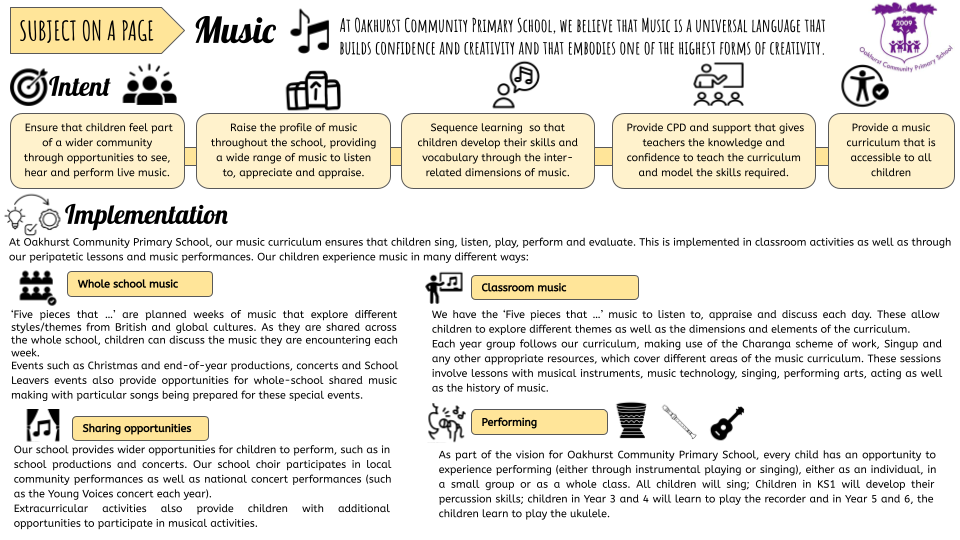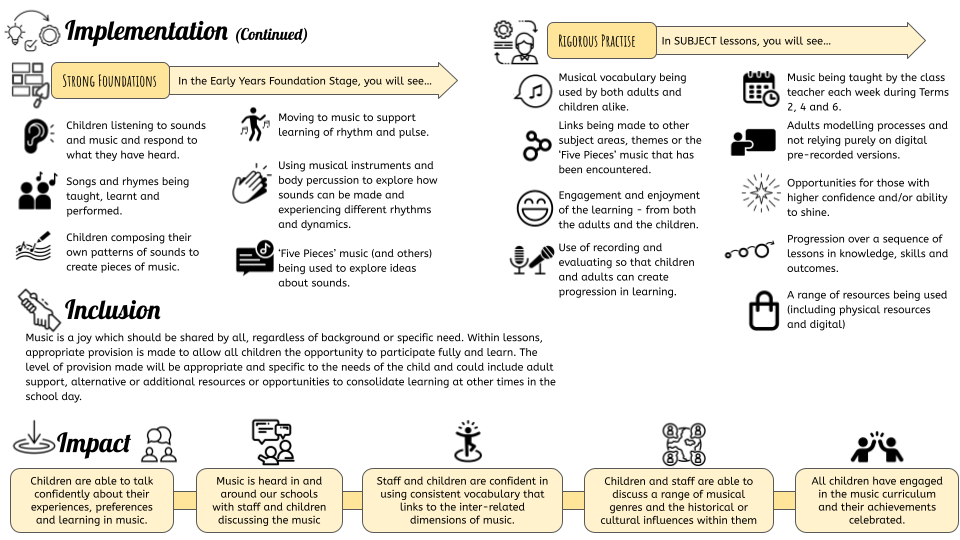The Oakhurst Curriculum
Our curriculum is based on the National Curriculum which can be found by clicking the link below.
We have developed our curriculum over recent years to ensure we not only meet, but exceed the requirements of the national curriculum in providing our pupils with a knowledge-rich education to ensure their success as they move into Key Stage 3.
The National Curriculum document shows the statutory objectives for the knowledge, skills and understanding that we teach at Oakhurst Community Primary School from Year 1 to Year 6 and can be accessed by clicking here.
At Oakhurst Community Primary School, we offer a broad, balanced and academically rigorous curriculum for all our learners. Children in the Early Years Foundation Stage are taught using the EYFS framework with an emphasis on developing key skills, knowledge and understanding through direct teaching and structured continuous provision.
A Knowledge-Based Curriculum
Our curriculum is designed with knowledge at its heart to ensure that children develop a strong vocabulary base and understanding of the world. The curriculum promotes long-term learning and we believe that progress means knowing more and remembering more.
We have developed a curriculum built on current research regarding how memory works to ensure that children not only have access to engaging and thought-provoking learning experiences, but are taught this in a way that ensures they can remember the curriculum content in future years.
We make use of Knowledge Organisers (which are sent home regularly) to ensure children know exactly which information is expected to be learned over the course of their study in a particular topic. There is further information about Knowledge Organisers below.
Central to the presentation of our curriculum is the aim to help our children grow to become knowledgeable, curious and interesting young people to talk to. Our staff will refer to knowledge as being ‘sticky’; if we learn and remember one fact, it is easier for the next one to stick to it and so on until great mountains of knowledge are grown!
This is why we place particular emphasis on children knowing by heart and building rich webs of knowledge as they progress through the curriculum. Parents can support this work through quizzing children on their knowledge organisers.
Knowledge Organisers
At Oakhurst, we use Knowledge Organisers (KOs) in class and as homework to help children to learn the essential knowledge they need for each topic they study. A Knowledge Organiser sets out in detail what we want children to know by heart by the end of the topic. We expect the majority of children to be able to recall all of the information on the KO by the end of the unit of work.
The children will be informally quizzed on these in class each week to help them remember what they are learning.
At the end of each topic, there is a test to find out what the children have remembered.
It is also useful for children to go back to previous KOs and revise these so that the information from previous learning is not forgotten.
Please navigate to your child’s year group under the ‘Classes’ tab in order to access the relevant KO for the current topic.
Subject Specific Information
Phonics
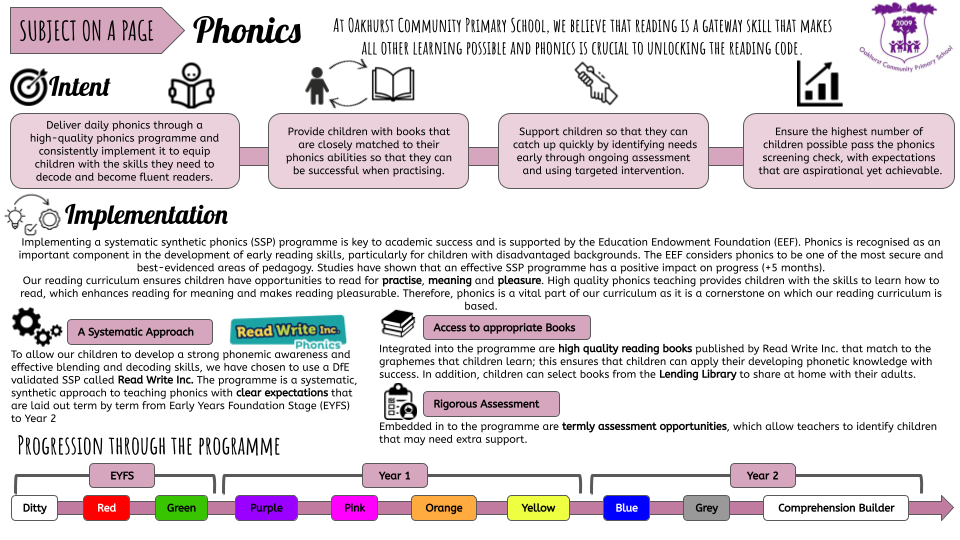
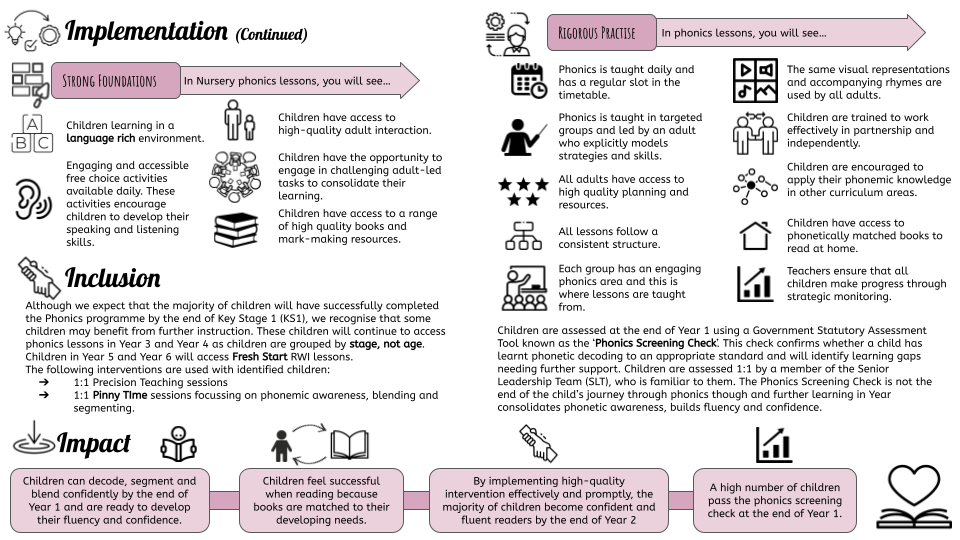
Writing

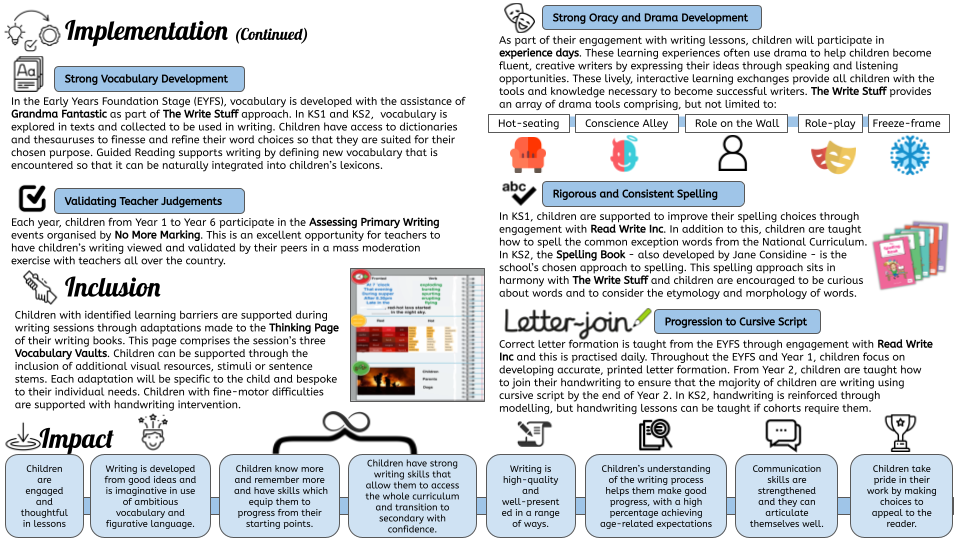
Spoken Language
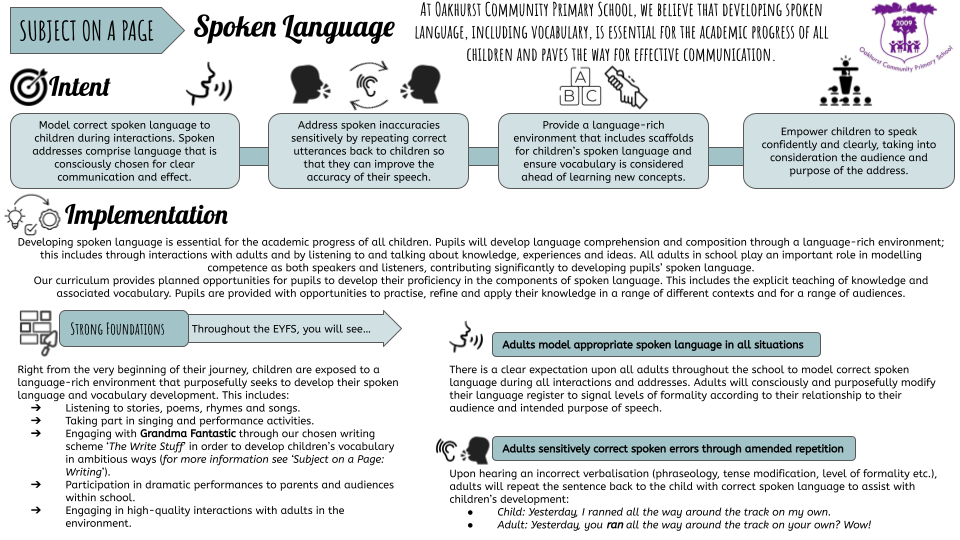
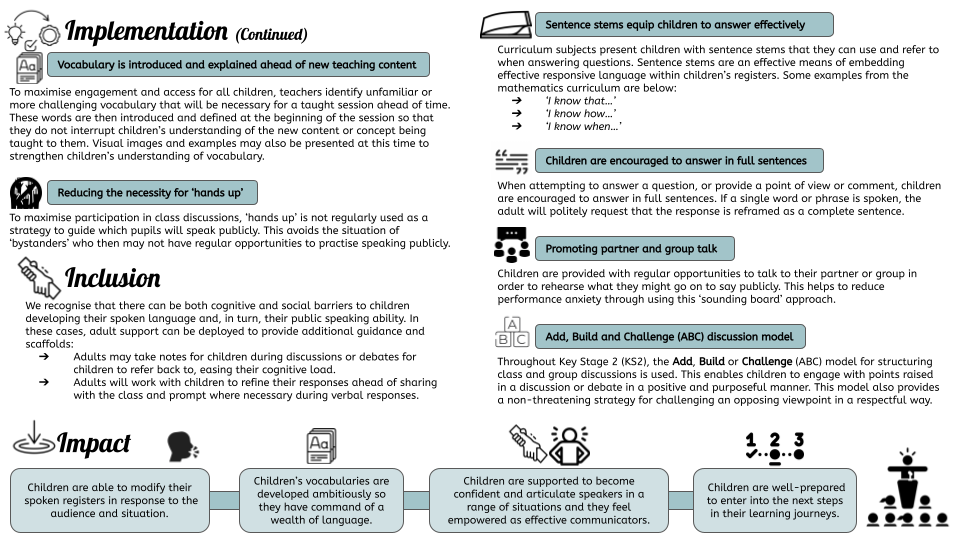
Reading
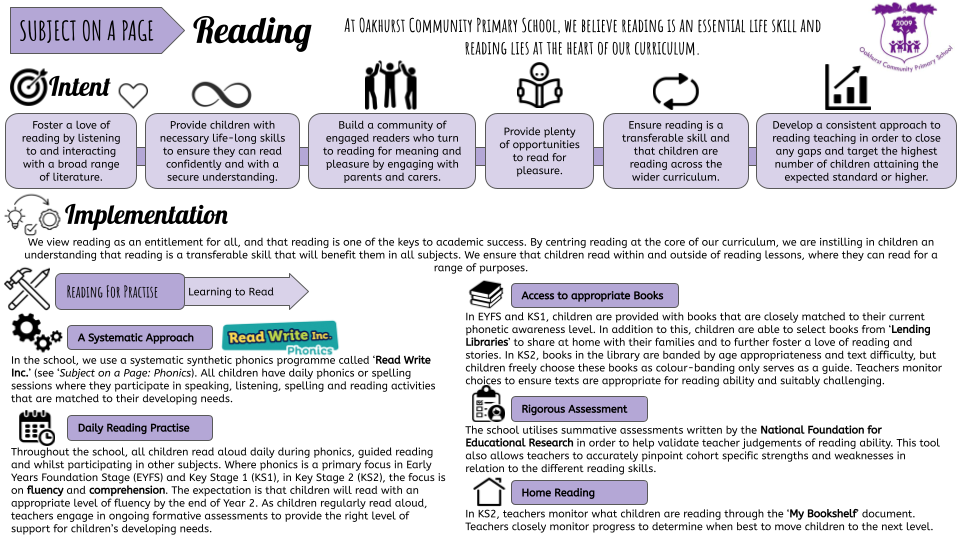
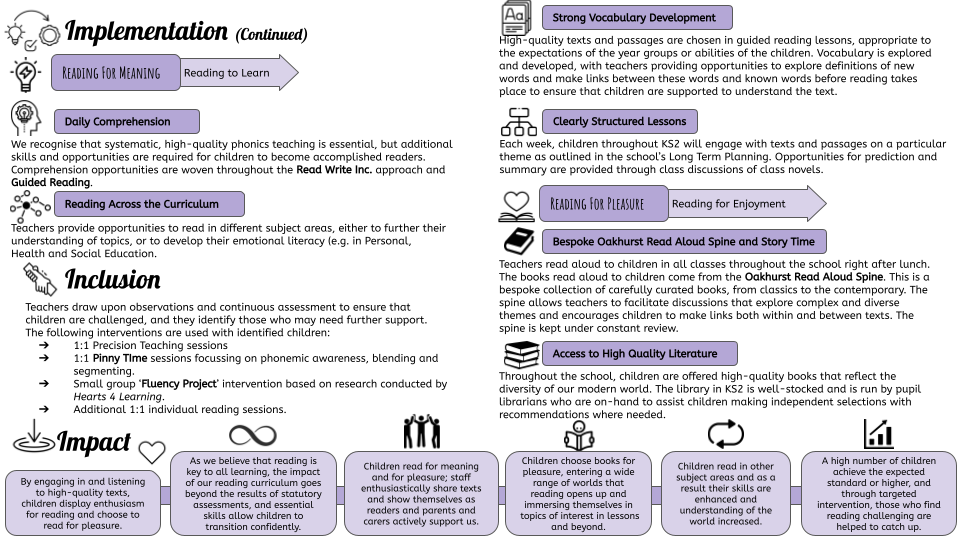
French
We believe that learning a forgeign language gives our children a strong foundation to move to secondary school and study other languages. The study of French also supports children’s understanding of English and, in particular, grammar and etymology (where words come from). To support our teaching of French, we utilise the Rigolo scheme produced by Oxford University Press.
https://global.oup.com/education/content/primary/series/rigolo/?region=uk
Religious Education
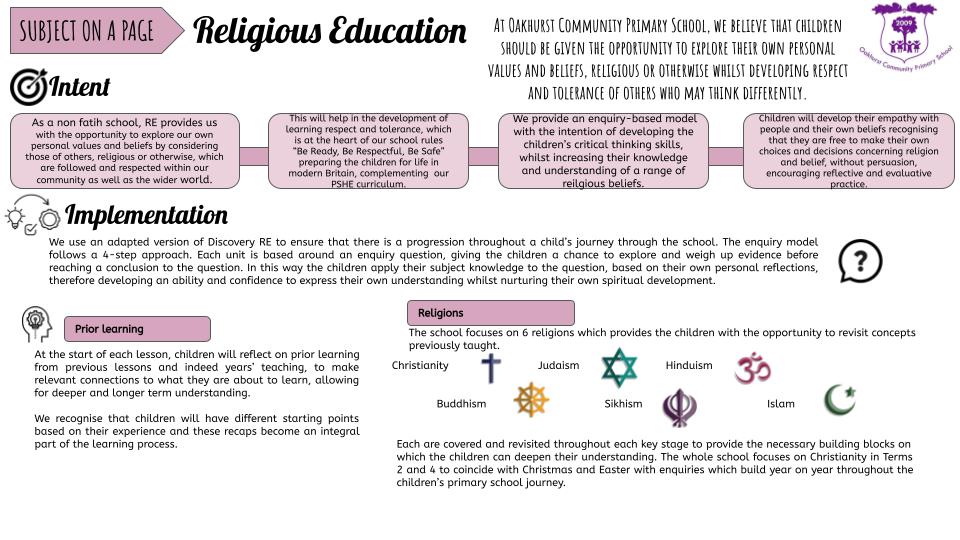
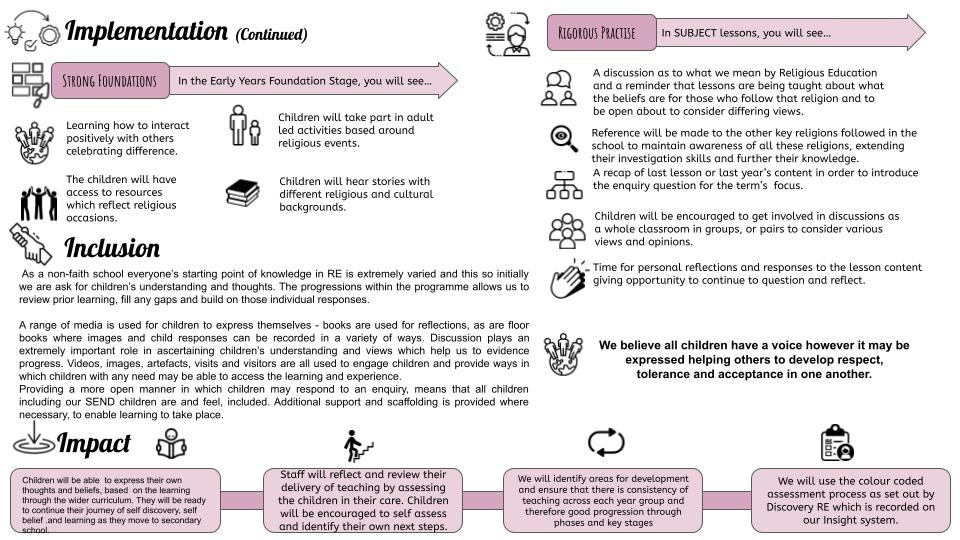
Art and Design
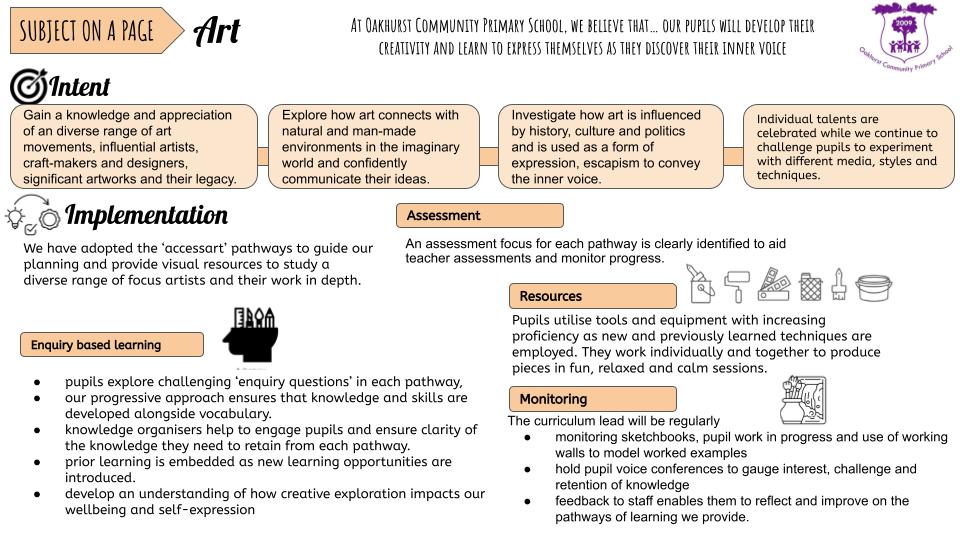
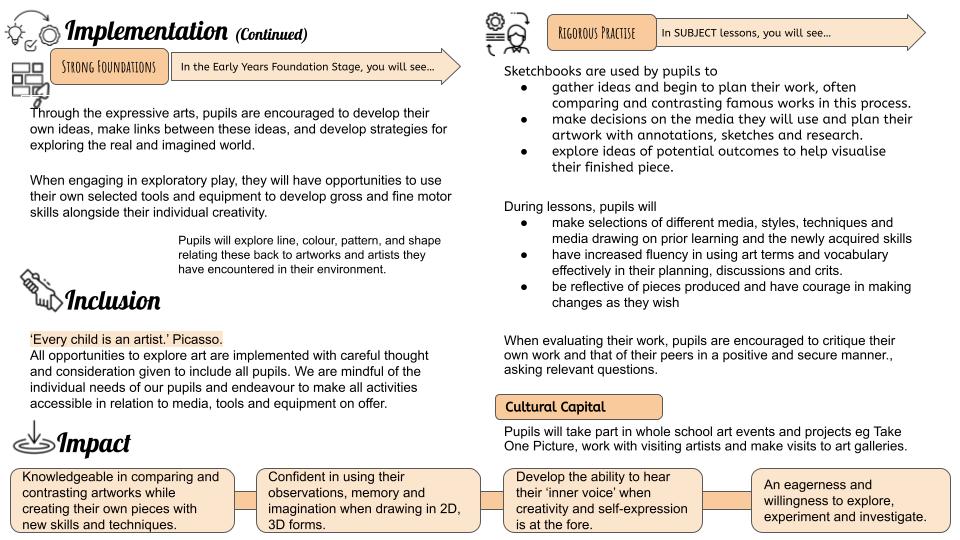
Design and Technology
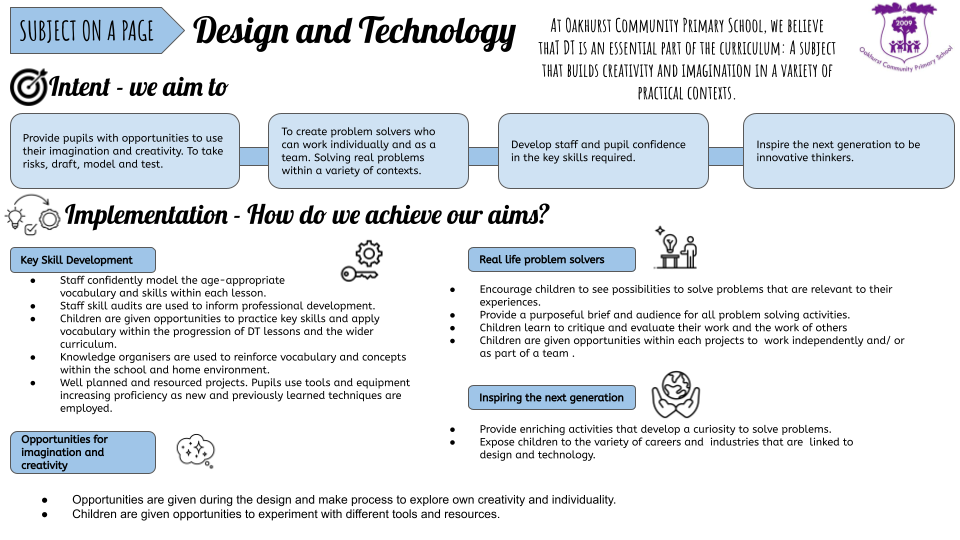
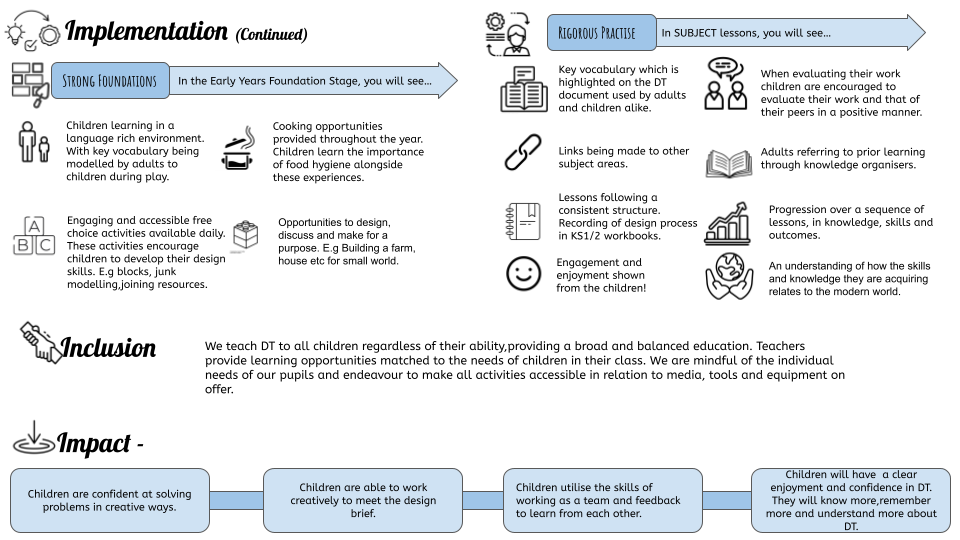
Computing
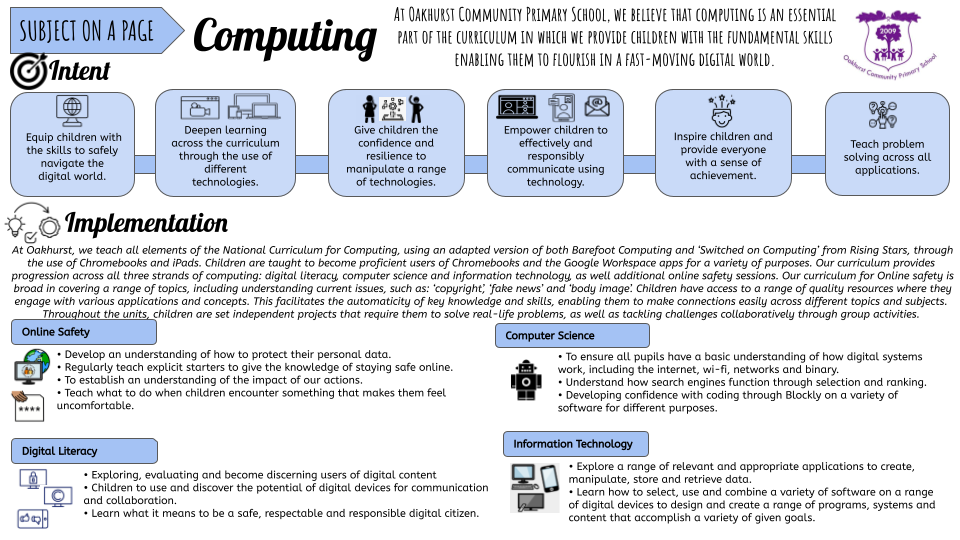
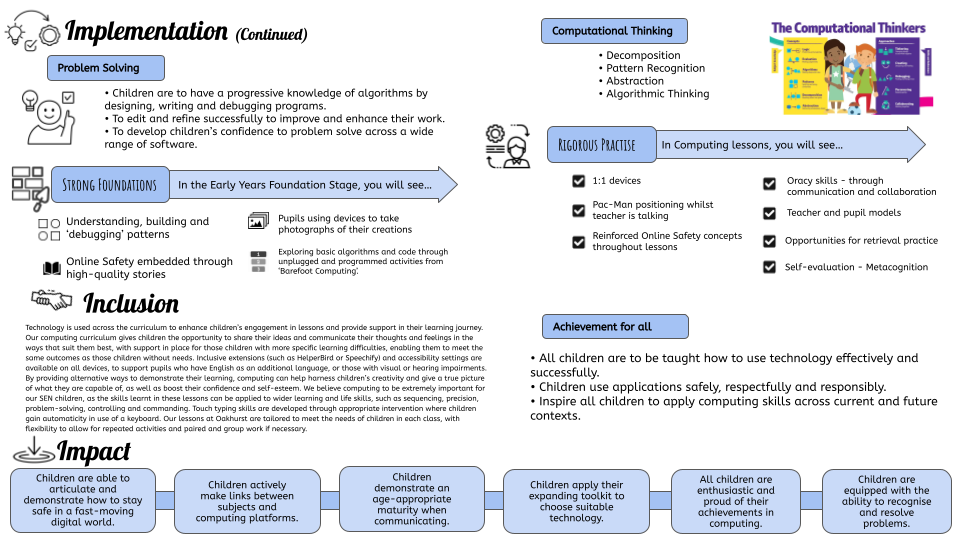
History
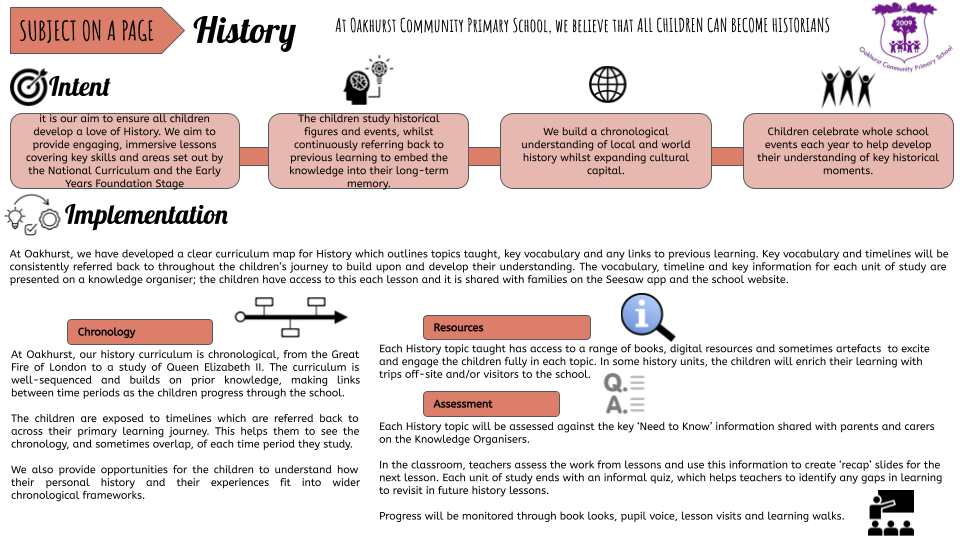
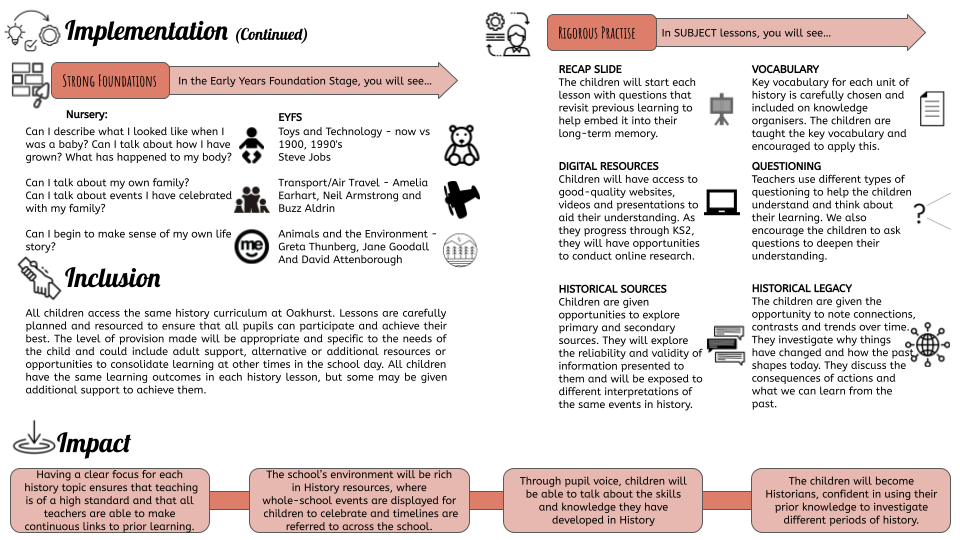
Geography
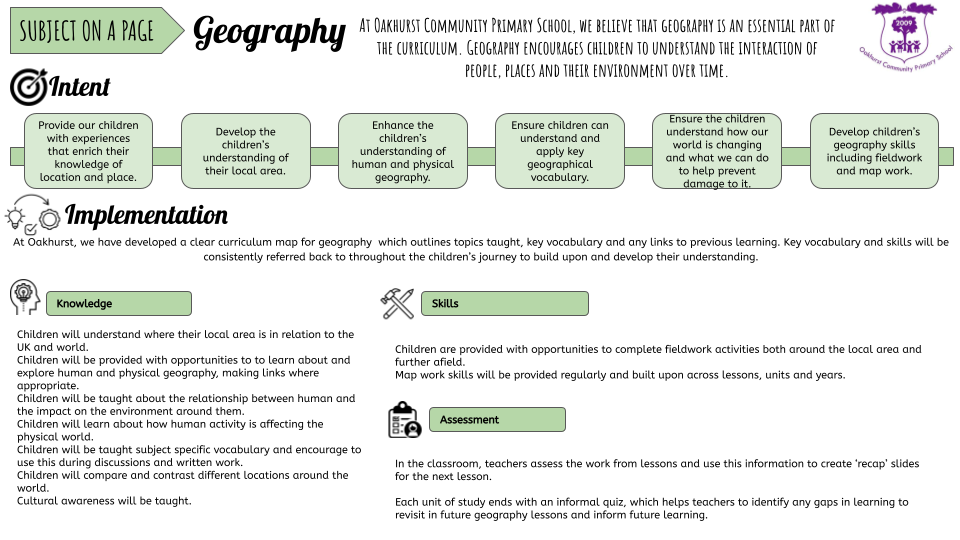
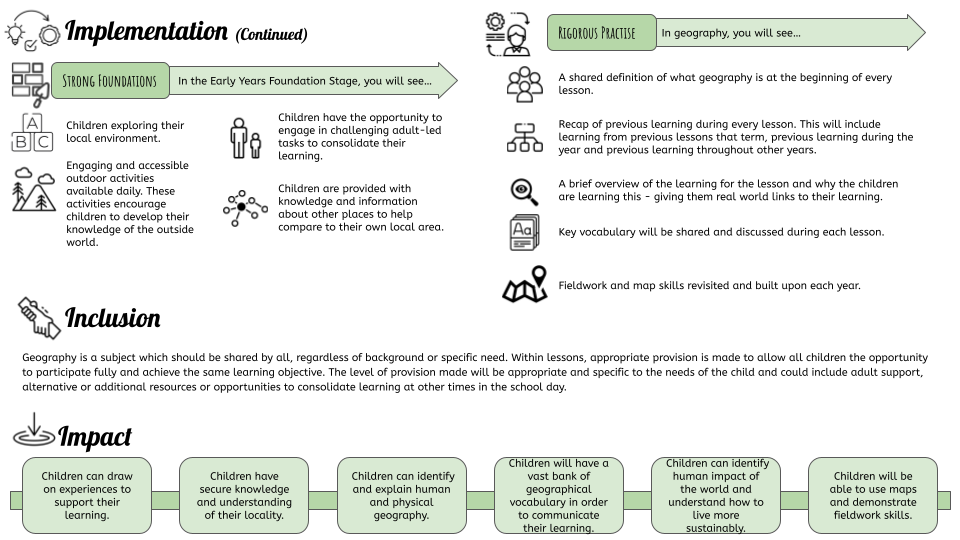
Music
Physical Education
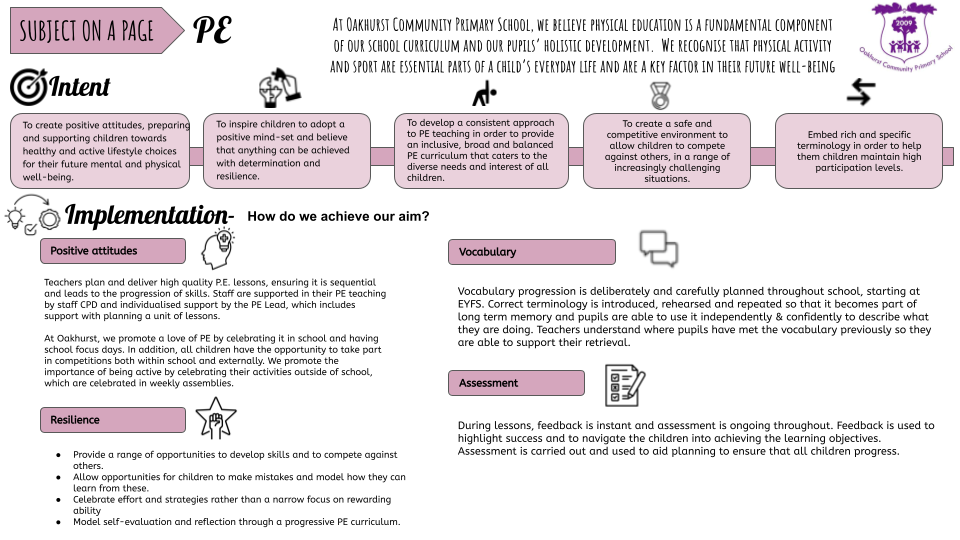
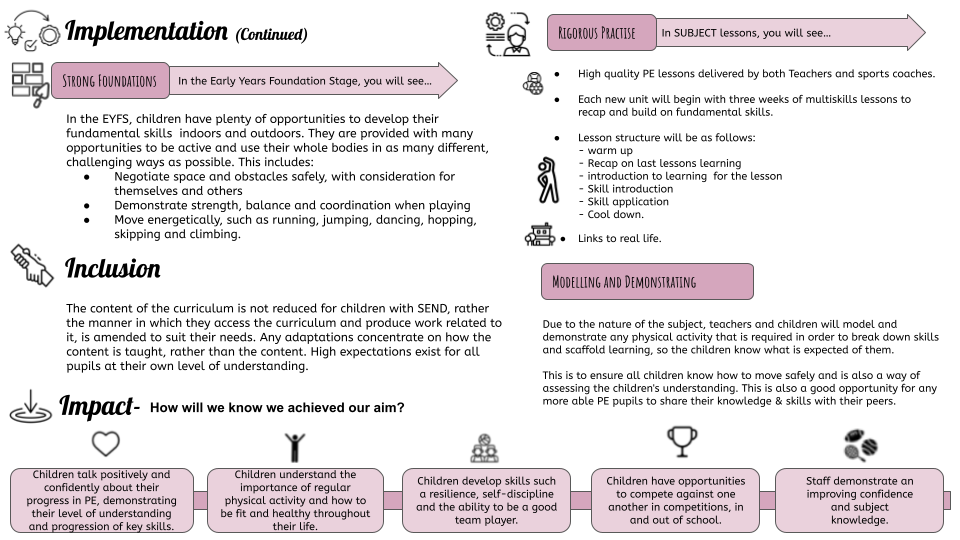
Personal, Social and Health Education
We teach Personal, Social, Health and Relationship Education as a whole-school approach to underpin children’s development as people and because we believe that this also supports their learning capacity.
To ensure progression and a spiral curriculum, we use Jigsaw, the mindful approach to PSHE and RHE, as our chosen teaching and learning programme and tailor it to our children’s needs. The mapping document: Jigsaw 3-11 and statutory Relationships and Health Education, shows exactly how Jigsaw, and therefore our school, meets the statutory Relationships and Health Education requirements.
Here, at Oakhurst Primary School we value PSHE and RHE as one way to support children’s development as human beings, to enable them to understand and respect who they are, to empower them with a voice and to equip them for life and learning.
‘Jigsaw is a unique, spiral, progressive and effective scheme of work, aiming to prepare children/young people for life, helping them really know and value who they are and understand how they relate to other people in this ever-changing world.’
We provide clear communication to parents about what is taught in RHE lessons. Below are some helpful documents for our parents and carers:
Information for Parents and Carers Leaflet
01. Being Me in My World Jigsaw 3-11 Parent Overview
02. Celebrating Difference Jigsaw 3-11 Parent Overview
03. Dreams and Goals Jigsaw 3-11 Parent Overview
04. Healthy Me Jigsaw 3-11 Parent Overview
05. Relationships Jigsaw 3-11 Parent Overview
06. Changing Me Jigsaw 3-11 Parent Overview
For more information about Jigsaw, please click here.
How can I find out more?
We are always more than happy to help.
If you have any queries, or you would like to find out more, please use the Enquiry Form found by navigating to the ‘Contact Us‘ tab on the main menu. Alternatively, you can direct your query to admin@oakhurst.swindon.sch.uk and we will put you in contact with the relevant member of staff.


